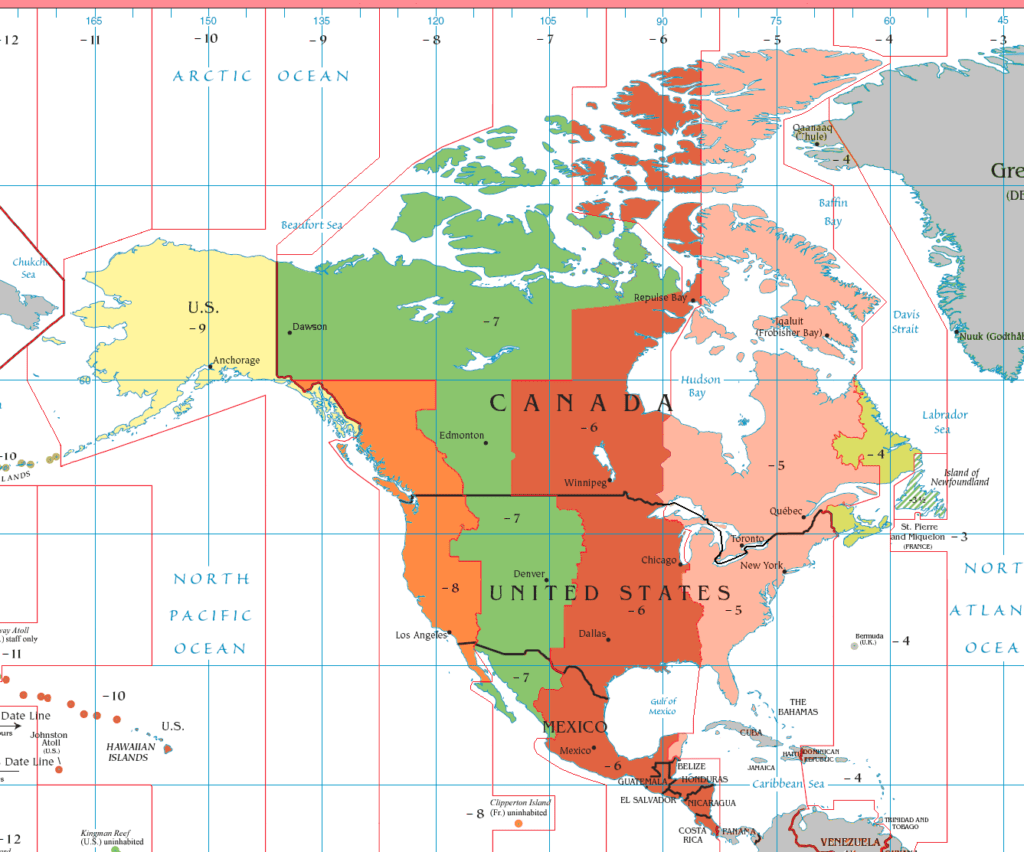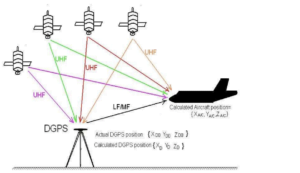Time Converter
Enter a time (UTC):
Enter a time (CST):
UTC To CST Conversion Table
| UTC Time | CST (UTC-6) | CST (UTC-5 during DST) |
|---|---|---|
| 00:00 | 18:00 | 19:00 |
| 01:00 | 19:00 | 20:00 |
| 02:00 | 20:00 | 21:00 |
| 03:00 | 21:00 | 22:00 |
| 04:00 | 22:00 | 23:00 |
| 05:00 | 23:00 | 00:00 |
| 06:00 | 00:00 | 01:00 |
| 07:00 | 01:00 | 02:00 |
| 08:00 | 02:00 | 03:00 |
| 09:00 | 03:00 | 04:00 |
| 10:00 | 04:00 | 05:00 |
| 11:00 | 05:00 | 06:00 |
| 12:00 | 06:00 | 07:00 |
| 13:00 | 07:00 | 08:00 |
| 14:00 | 08:00 | 09:00 |
| 15:00 | 09:00 | 10:00 |
| 16:00 | 10:00 | 11:00 |
| 17:00 | 11:00 | 12:00 |
| 18:00 | 12:00 | 13:00 |
| 19:00 | 13:00 | 14:00 |
| 20:00 | 14:00 | 15:00 |
| 21:00 | 15:00 | 16:00 |
| 22:00 | 16:00 | 17:00 |
| 23:00 | 17:00 | 18:00 |
UTC To IST Conversion Table AM/PM
| UTC Time | CST (UTC-6) | CST (UTC-5 during DST) |
|---|---|---|
| 12:00 AM | 6:00 PM | 7:00 PM |
| 1:00 AM | 7:00 PM | 8:00 PM |
| 2:00 AM | 8:00 PM | 9:00 PM |
| 3:00 AM | 9:00 PM | 10:00 PM |
| 4:00 AM | 10:00 PM | 11:00 PM |
| 5:00 AM | 11:00 PM | 12:00 AM |
| 6:00 AM | 12:00 AM | 1:00 AM |
| 7:00 AM | 1:00 AM | 2:00 AM |
| 8:00 AM | 2:00 AM | 3:00 AM |
| 9:00 AM | 3:00 AM | 4:00 AM |
| 10:00 AM | 4:00 AM | 5:00 AM |
| 11:00 AM | 5:00 AM | 6:00 AM |
| 12:00 PM | 6:00 AM | 7:00 AM |
| 1:00 PM | 7:00 AM | 8:00 AM |
| 2:00 PM | 8:00 AM | 9:00 AM |
| 3:00 PM | 9:00 AM | 10:00 AM |
| 4:00 PM | 10:00 AM | 11:00 AM |
| 5:00 PM | 11:00 AM | 12:00 PM |
| 6:00 PM | 12:00 PM | 1:00 PM |
| 7:00 PM | 1:00 PM | 2:00 PM |
| 8:00 PM | 2:00 PM | 3:00 PM |
| 9:00 PM | 3:00 PM | 4:00 PM |
| 10:00 PM | 4:00 PM | 5:00 PM |
| 11:00 PM | 5:00 PM | 6:00 PM |
Places Using CST In US, Canada, Mexico And More
| Country | Region/Place |
|---|---|
| United States | Texas, Illinois, Minnesota, Missouri, Wisconsin, Iowa, Arkansas, Louisiana, North Dakota, South Dakota, Nebraska, Kansas, Oklahoma |
| Canada | Manitoba, Saskatchewan, parts of northwestern Ontario |
| Mexico | Baja California Sur, Campeche, Chiapas, Chihuahua, Coahuila, Durango, Guerrero, Jalisco, Michoacán, Nayarit, Nuevo León, Oaxaca, Quintana Roo, Sinaloa, Sonora, Tabasco, Tamaulipas, Veracruz, Yucatán, Zacatecas |
| Belize | Entire country follows CST year-round |
| Guatemala | Entire country follows CST year-round |
| Honduras | Entire country follows CST year-round |
| El Salvador | Entire country follows CST year-round |
| Nicaragua | Entire country follows CST year-round |
| Costa Rica | Entire country follows CST year-round |
| Ecuador | The province of Galápagos follows CST (mainland Ecuador uses ECT – Ecuador Time) |
| Colombia | The province of San Andrés and Providencia follows CST (mainland Colombia uses COT – Colombia Time) |
| Peru | The Loreto Region follows CST (mainland Peru uses PET – Peru Time) |
| Mexico (Baja California) | The northern part of Baja California follows PST (Pacific Standard Time) |
| Bahamas | The western part of the Bahamas, including the island of Andros, follows CST (most of the Bahamas follows EST – Eastern Standard Time) |

What is UTC?
UTC or Coordinated Universal Time, serves as the base for the global timekeeping. It is the primary time standard that is used to regulate clocks and time across the world. UTC and GMT are used interchangeably, even though time in GMT and UTC is the same, GMT is a time zone and UTC is a time standard. UTC is often referred to as the standard time of the world because it doesn’t counter Daylight Saving time ( DST ) and maintain a consistent time over the entire year. So, the UTC has become the reference point from which all other time zones are derived.
What is CST?
CST stands for Central Standard Time which is primarily used in North America regions, including some parts of the United States, Canada and Mexico. CST is usually Six hours behind UTC ( UTC-6 ) and five hours during Saving. During Daylight Saving Time ( DST ), the CST switches to CDT which is when it is UTC-5.
Why Convert from UTC to CST?
The need for UTC to CST conversion is essential for variety of the reasons, for example:
International Meetings: When scheduling meetings or events with teams spread across the world, it is crucial to ensure that all the participants of the meet are on the same page with respect to timing. Converting UTC to CST helps in setting a common reference point.
Travel Planning: If you are planning a trip to Alabama from New York, Alabama uses CST and knowing the time difference is really important for making transportation and accommodation arrangements.
Communication: In the digital age, we talk to people all over the world, accurate time zone conversion is necessary to coordinate communication effectively with people from different zones.
UTC to CST Conversion Methods
Now that we’ve understood the importance of UTC to CST conversion let’s explore the various methods available for this task:
Manual UTC to CST Conversion
Manually converting UTC to CST involves using the time zone offsets. The offset for CST is typically UTC-6, which means that you have to subtract 6 hours from UTC time to get the CST time equivalent. Here is a step-by-step guide:
- Start with UTC time you want to convert – Let’s say 2.00 PM
- Subtract 6 hours from UTC time. – Which is 8.00 AM
- Adjust for any data changes if the subtraction takes across midnight. – Same date for above example.
Using Online Conversion Tools
The internet has made life easier in many ways, which includes time conversion. There are several reliable online tools and calculators, But the above tool is the most simple and easy to use tool to convert UTC to CST. Just enter the time and get the other. UTC to CST or CST to UTC, is simple with the above tool. Change the time you know and get the time you wanna know. It’s as simple as that.
The above Online conversion tool is user-friendly and eliminates the need for manual calculations, making them the go to choice.
Automated UTC to CST Conversion in Programming
For Those programmers, there are various programming languages that offer libraries and functions that handle these tasks. For instance in python, the pytz library is the gold.
Here’s a simplified example in Python:
import pytz
from datetime import datetime
# Define the UTC time
utc_time = datetime(2023, 9, 1, 12, 0, 0, tzinfo=pytz.UTC)
# Convert to CST
cst_time = utc_time.astimezone(pytz.timezone('US/Central'))
print("UTC Time:", utc_time)
print("CST Time:", cst_time)This code snippet initializes a UTC time and converts it to CST using the pytz library.
Common Mistakes and Pitfalls
Converting time zones may look really simple, but there are some common mistakes and pitfalls to be aware of,
Daylight Saving Time Changes: Remember that some regions, including the parts of CST zones, include Daylight saving time. This means that the UTC to CST conversion needs to be offsetted during a certain period of the year. Please make sure to include this when making conversion.
Ambiguous Times: When transitioning from daylight saving time to standard time ( or the reverse ), there can be an ambiguous time. For example, during the “fall back” transition from CDT to CST, the same clock time occurs twice. Be cautious when dealing with such occurrences.
Proper Handling of Time Zones: When programming or using some automated methods, ensure that you are handling time zones correctly. Failing to specify the correct time zone can lead to inaccurate conversions.
Conclusion
In conclusion, mastering UTC to CST conversion is a valuable skill in our globalized world, enabling you to coordinate events and communications across time zones with confidence.

